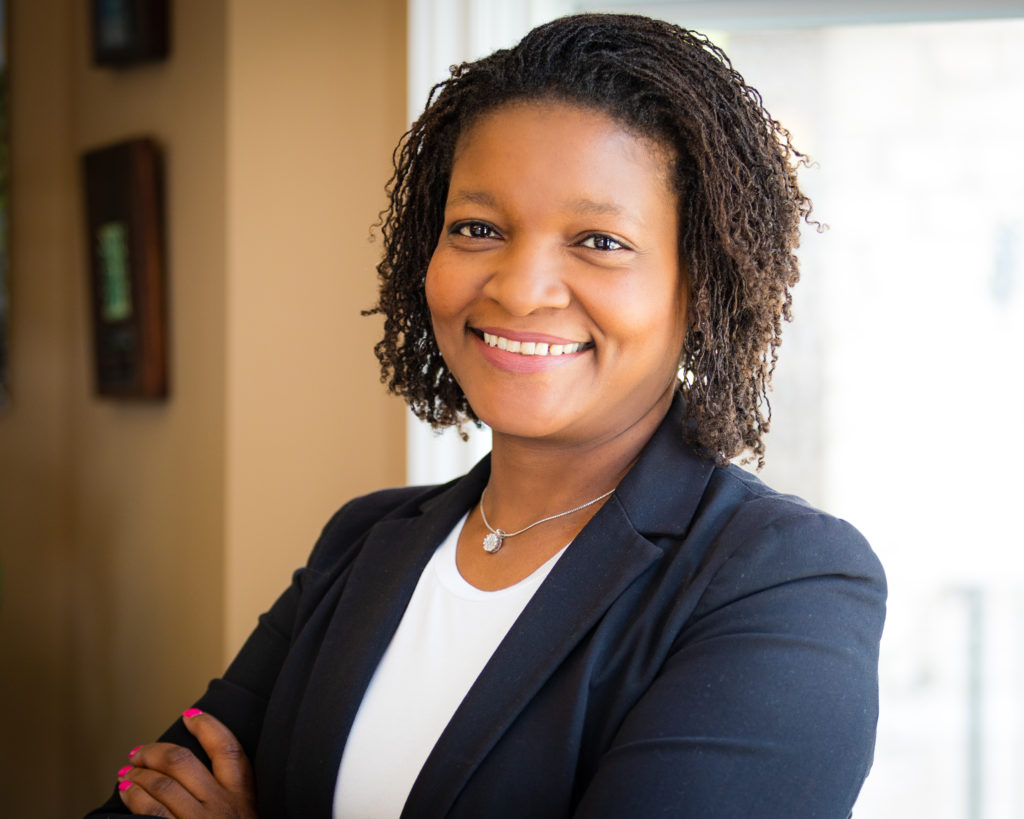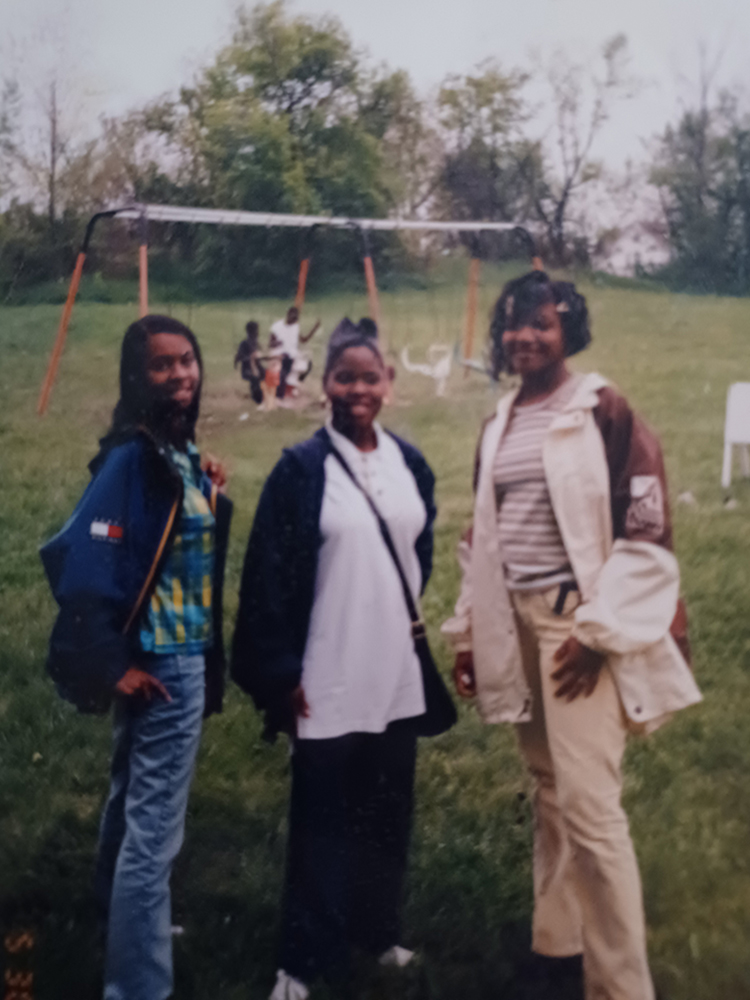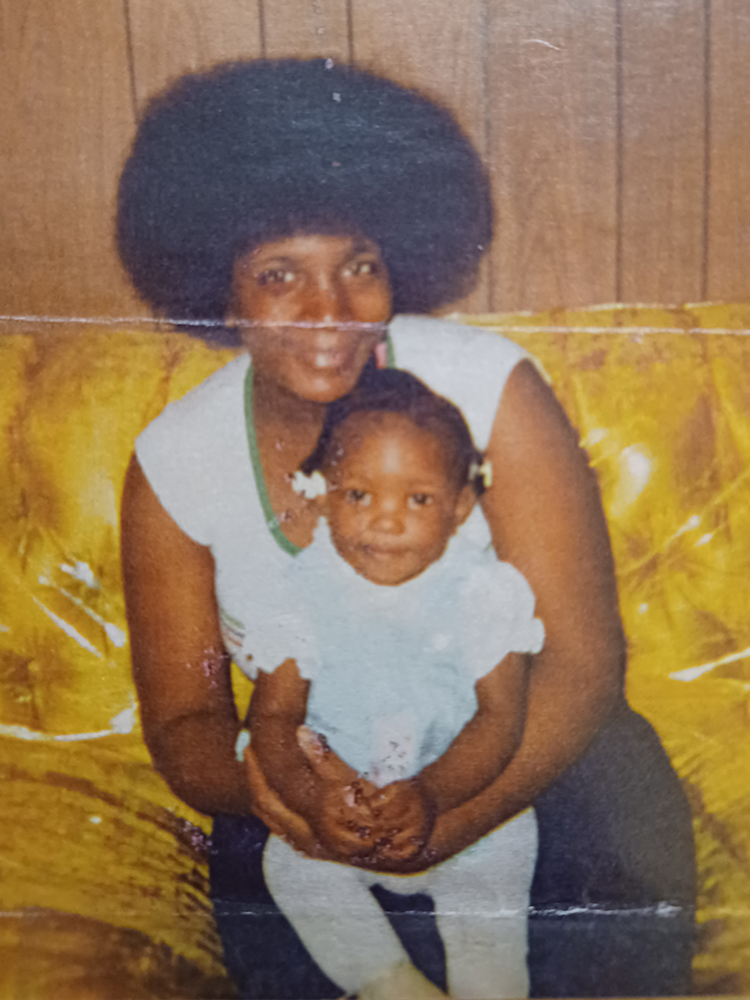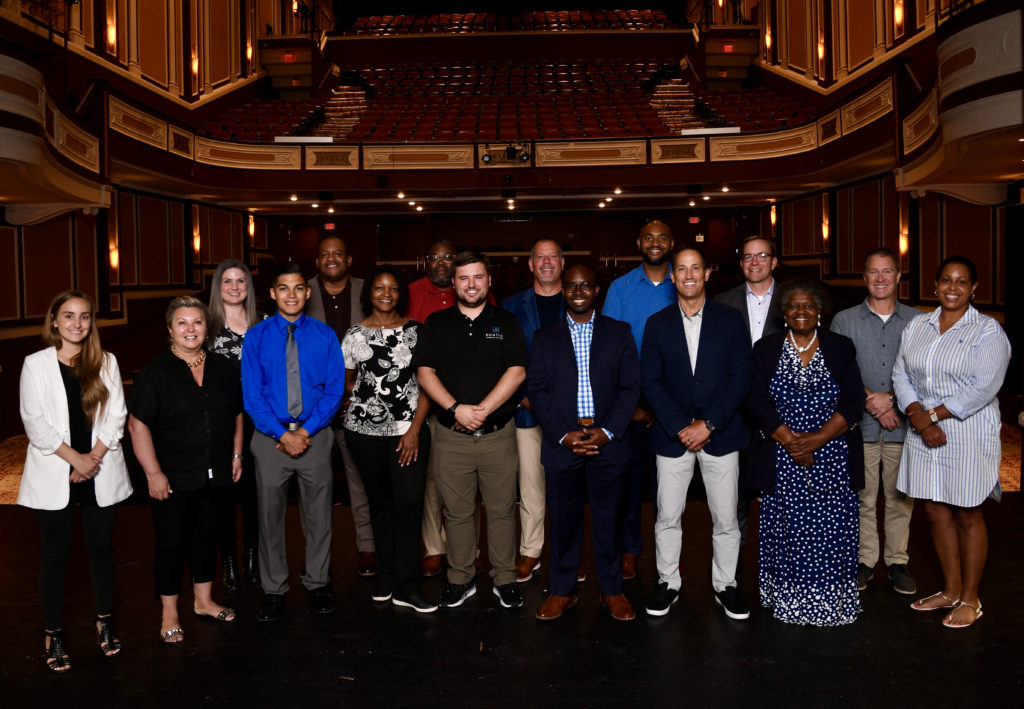Nonprofit leader putting community first in hometown
Published on August 29, 2022 in Diversity, Equity and Inclusion

Sommer Brock grew up in the ‘80s – a time defined by big hair and boomboxes. For many families – particularly Black families – there was a darker side to this colorful period as the crack cocaine epidemic and discriminatory policing policies ravaged inner cities across the country.
Addiction, death and crime increased. By 1989, one in every four Black males aged 20 to 29 was either incarcerated or on probation. Sommer’s hometown of Pontiac, a once booming city, wasn’t exempt from the devastation. Neither was her family.
“That environment, those struggles defined my childhood,” Sommer said, now 42 and a mother of two. “I had grandparents and aunts who picked up the slack when my mom and dad weren’t able. It wasn’t easy, that’s for sure.”
Despite the difficulties of the time, Sommer gathered strength from her community.
“I remember how community-focused this area used to be,” Sommer said. “We gathered for big events – fireworks, concerts – and we supported each other no matter what.”
It’s a way of life she’s hoping to return to residents in her role as the vice president of development for the Pontiac Community Foundation. The foundation is on a mission to make Oakland County’s seat a premier destination to live, work and play.
In January, the Pontiac Community Foundation became one of 13 Black, Indigenous, People of Color (BIPOC) led organizations to receive funding through United Way for Southeastern Michigan’s Racial Equity Fund. An additional nine organizations received funding in June, bringing the total allocation to more than $1 million to aid those most harmed by systemic oppression in reaching their full potential.
“Our central goal, in alignment with our mission of creating stable households and thriving children, is to create with community, equitable opportunities for BIPOC leaders and organizations that are in closest proximity to the expressed inequities and empower them with the resources and support necessary to make sustainable change in the lives of residents in our region,” Andre Ebron, senior director, Diversity, Equity, and Inclusion at United Way for Southeastern Michigan.
Going back to the root


Months after Sommer completed her undergraduate degree in chemical engineering, 9/11 occurred and two job offers were rescinded, leaving her to take a job as a substitute teacher. From there, she began working with nonprofits including the Society of St. Vincent de Paul, the Detroit Zoological Society and Cranbrook.
In recent years, Sommer began a self-exploration journey into why she has stayed in nonprofits instead of seeking out a job in science or engineering. The answer led her back to her beginnings.
“As a child, I remember getting Thanksgiving baskets from Lighthouse and going shopping for groceries at Focus: HOPE,” Sommer said. “After a house fire, we received clothing vouchers from the Salvation Army and as a high school student, I participated in the Horizons Upward Bound program, which is why I was able to go to the University of Michigan.”
Years later, when the father of Sommer’s then-five-year-old daughter died, they turned to Henry Ford SandCastles for grief counseling and support.
“Nonprofits have always had a role in my life. I can say with 100 percent certainty that I wouldn’t be who I am today were it not for the interventions of so many nonprofits. This is my way of paying it forward,” Sommer said.
Her commitment to nonprofits is second only to her commitment to her hometown.
“I’ve had a successful career,” Sommer said. “Of course, I could have moved away from Pontiac by now, but I have family here – aunts, uncles, cousins – and they deserve the same amenities as residents of other cities. It doesn’t mean anything for me to relocate if the outcomes are still the same for the people I’m leaving behind who don’t have the same option to leave.”
Equity and opportunity for all

Sommer served as a Pontiac Community Foundation board member before taking on a full-time fundraising role with the organization, believing that many of the city’s challenges can be solved when the community unites with a focus on strategic leadership, collaboration, and philanthropy.
The organization opened its doors just over four years ago and is already making an impact, despite the challenges of the pandemic, which Sommer calls a silver lining. The team launched MyCOVIDResponse in response to the COVID-19 pandemic, providing over 750,000 meals to at-risk populations, and serving over 8,400 individuals.
“It really helped us to define our space around bringing organizations together and being a collaborative spirit among nonprofits in Pontiac. It provided us an opportunity in a time of great need to show the type of impact we could have long-term,” she said.
The team and board aligned around four priority areas: neighborhood investment, economic vitality, civic engagement and racial equity.
Improving quality of life
All the foundation’s priorities map back to improving the overall quality of life for Pontiac residents. It’s no easy task in Michigan’s oldest inland city, where crime is 39 percent higher than the national average and Black residents –comprising nearly 50 percent of the city’s population – are more likely to be living below the poverty line, according to Census data.
When the conversation shifts from quality of life to life expectancy, the statistics are even more dire. A baby born in Bloomfield Hills can expect to live to reach 84.6 years old – long enough to retire and see their grandchildren grow up. The same child born just three miles away in neighboring Pontiac would live 20 fewer years – reaching only 65.7 – barely old enough to qualify for social security.
These huge swings in life expectancy and other quality of life indicators do not have to be the norm, according to the Pontiac Community Foundation.
With the support of Racial Equity Fund dollars, the organization is expanding upon the work of their Task Force on Racial Health Inequities. In 2021, the organization assembled a group of community members and leaders to explore social determinants of health and the critical life expectancy gap in the City of Pontiac. This fall, the group plans to release to the public a plan with actionable steps to improve outcomes for residents. Funding from the Racial Equity Fund will support the next phase of this work with the implementation of Action Groups to move the work forward.
Informed by community
This community and data-driven approach is a hallmark of the foundation’s work.
“We didn’t just sit in a bubble and say, ‘This is what we think Pontiac needs,’” Sommer said. “We really walked the streets, interviewed, went door-to-door all over Pontiac and surveyed residents, trying to figure out the best ways for us to have an impact.”
Based on those conversations, the team discovered that 17 percent of residents did not have access to a vehicle. These transportation limitations were preventing many people from accessing essential services and preventing children from participating in beneficial afterschool activities.
In response, the Pontiac Community Foundation created the M1 Mobility initiative – a community-based transportation solution. M1 Mobility has provided transportation to and from summer programs for more than 500 children. An expansion is planned to provide transportation for seniors and adults.
“I’m so proud of this solution because it’s answering a real need. It’s a tangible demonstration of what’s possible when you collaborate and bring the right people to the table to solve a problem,” Sommer said.
Lifting others
The foundation’s recent Pontiac Impact Challenge is another point of pride for Sommer. She created the challenge to equip local nonprofits with the tools and resources to engage community members in a crowdfunding campaign. At the end of the challenge, the organizations had a new base of supporters and new tactics to use for further fundraising.
The Art Experience took third place – winning just over $5,000. The organization’s executive director, Audra Pieknik, credited Sommer’s creativity and thoughtfulness in creating the challenge materials.
“The templates made it a turnkey process for us,” Audra said. “That’s the only way we were able to participate. We’re so busy. We’re wearing so many hats. I really appreciate that the Pontiac Community Foundation helped us raise funds without making it a huge lift.”
Through the challenge, The Art Experience launched its Create Connection program, which offers free monthly art therapy sessions via Zoom.
Helping resource-strapped organizations has become an area of specialty for Sommer.
“There’s a lot of disparity, so I’m constantly challenging myself to meet businesses where they are. A lot of times, that’s the basement or kitchen of their homes and that’s okay too,” she said. “We can help them grow from anywhere.”
A recent experience during an Oakland County leadership cohort inspired Sommer to dig even deeper when trying to level the playing field for others.
“There were 50 or so leaders from Oakland County. There were no Black men, and I was one of only four Black women,” she said. “There was a lot of talk about people ‘pulling themselves up by their bootstraps’ but I continually stressed the irrelevance of these conversations as long as there are people who don’t even have boots.
“You can’t look at me and say every other Black person can do it. Coming from where I’m from, I’m the anomaly. We have to create ways to level the playing field from birth.”
You can make a difference for BIPOC-led organizations and the communities they serve. Donate to the Racial Equity Fund today.
Sommer’s top three tips for local philanthropists
Throughout her 20-year career in fundraising, Sommer Brock has raised more than $10 million dollars for organizations large and small. This August, which is National Black Business Month and National Black Philanthropy Month, she’s sharing her top three tips for local leaders in these spaces.
- Look beyond grants: Building a base of individual supporters is the path to long-term sustainability.
- Be informed: Tap into the communities you serve for data and use it to inform your programs, outreach, and fundraising.
- Generosity wins: Philanthropy comes from generosity, not wealth. Focus on fostering relationships with supporters who demonstrate generosity and not on those who you perceive to be wealthy.